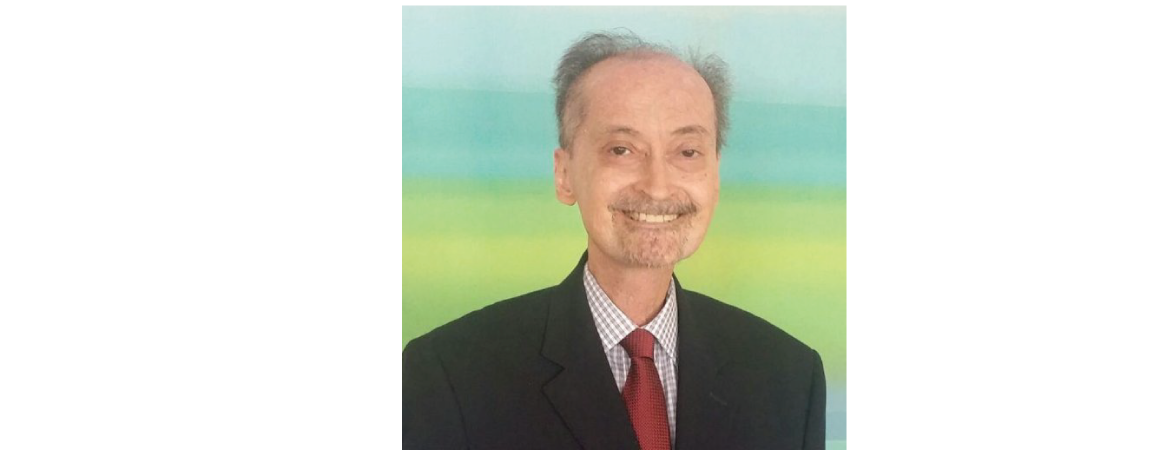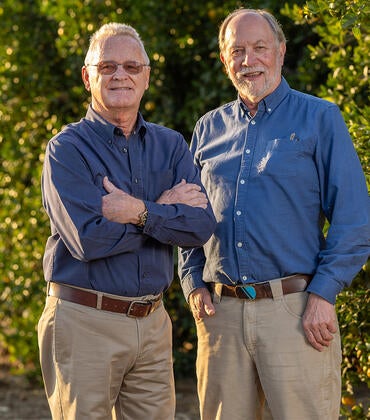
Dimitrios Morikis, UC Riverside Professor of Bioengineering, passed away May 27, 2019. Professor Morikis is well known for his work in immunophysics and immunoengineering, where he used physics and engineering approaches to understand molecular mechanisms of immunology, develop disease models, and design new drugs and molecular sensors for autoimmune and inflammatory diseases.
Professor Morikis earned a Ph.D. in Physics from Northeastern University and, following his postdoctoral work at Scripps Research Institute and UC San Diego, he began his professorial career at UC Riverside’s Department of Chemical and Environmental Engineering. In 2006, he became a founding faculty member of the Department of Bioengineering and later became part of the faculty of the graduate program in Biomedical Sciences of the School of Medicine and of the Institute for Integrative Genome Biology.
“Throughout the years, there was a natural evolution from biophysics to bioengineering via structural biology and computational chemistry, which is consistent with the evolution of my research interests and training,” Professor Morikis said during an interview about how his research had shifted.
His research focus on immune system function came after a personal struggle with illness. “In 1994, I got sick with a life-threatening disease of the bone marrow. Thanks to modern medicine and after a strenuous process, I recovered and managed to get back to research,” he explained during the interview. “It was in 1995 when I decided to dedicate the rest of my research life in studying the molecular basis of immune system function and trying to develop means to fight immune-mediated diseases.”
Professor Morikis’ most recent research was highly cross-disciplinary and focused on utilizing a blend of molecular-level and systems-level science and collaborations with researchers working on cell and tissue levels and in vivo studies. A prime focus of his work was the development of affordable potential pharmaceuticals for rare diseases. He led the immunophysics field as the Editor-in-Chief of BMC Biophysics.
He published more than 130 peer-reviewed research publications, facilitated more than $4 million in extramural research funds, and was named a Fellow of the American Association for the Advancement of Science and a Fellow of the American Institute for Medical and Biological Engineering. “Dimitri was an accomplished scholar, a great colleague, and an outstanding citizen of UCR,” said Xiaoping Hu, Chair of UCR’s Department of Bioengineering.
As important as his research accomplishments, Professor Morikis was a caring and devoted teacher and mentor to numerous undergraduate and graduate students who went into successful careers and he received the 2012 Chancellor’s Award for Excellence in Undergraduate Research and Creative Achievement. “Professor Morikis was a very supportive and his teachings have stayed with us as we continue to grow professionally and personally. He will be truly missed,” wrote several students in the UCR Class 2012.
Professor Morikis is survived by his wife Gloria González-Rivera, a UCR Professor of Economics, and their son Vasilios, who earned a Ph.D. in Biomedical Engineering from UC Davis earlier this year. A memorial fellowship fund, the Dimitrios Morikis Bioengineering Scholarship, has been created in his name to provide support in perpetuity to both undergraduate and graduate students studying bioengineering. To contribute, please visit www.engr.ucr.edu/morikis



